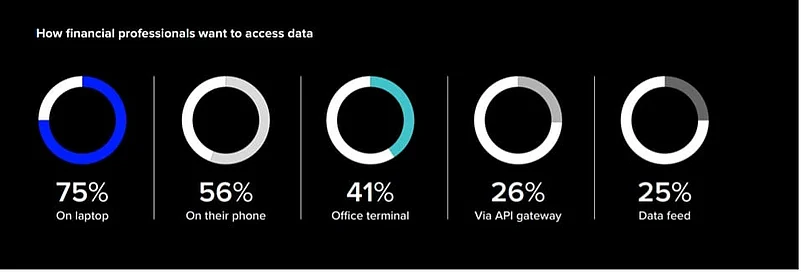As COVID-19 spread around the globe, asset managers faced the challenge of the shift towards remote working. This transformation to staff working away from the office relied on technologies that had not been tested in this way.
The industry succeeded, with very little disruption to businesses. Not only did this accelerate the use of data and technology, but it also showcased its effectiveness.
As technology evolves, the future of work may focus less on the location of the asset manager and more on how they access data and the value they glean from it.
A successful transition to remote working
What sometimes gets lost in the discussion about the pros and cons of remote working is the question of what’s best for the business in general – and clients in particular.
To answer that, we need to go back to the beginning of the COVID-19 pandemic when asset managers faced twin challenges.
The first was managing assets and clients during a period when investment and income models were challenged: between 12 February and 23 March 2020, the Dow Jones lost 37 per cent of its value. But that at least was a familiar problem for those who had navigated previous crises.
The new challenge was the shift towards remote working, relying on technologies that had never been tested in this way.
The industry succeeded, with very little disruption to the business. Not only did this accelerate the use of data and technology, it also showcased its effectiveness. It also saw staff make more use of portable devices.
Many employees discovered that working remotely could not only be more productive, it also gave them more time with family and friends, as well as saving on commuting costs. And a number of those with greater family and/or caring responsibilities flourished in this more flexible environment, while the value of ‘presenteeism’ waned.
All in all, a difficult genie to put back in the bottle.
The future of work will be tech-driven
So, what does the future of work hold?
Well, driven by the factors described above, there may be little incentive for either management or employees to return to the status quo. Remaining issues, like the ‘apprentice model’ where junior staff learn through experience, are already being addressed with new programmes designed to deliver more formalised levels of networking and on-the-job learning.
The biggest risk may be that by focusing too heavily on ‘the future of work’, there is not enough focus on the future of the industry.
The real question may not be how to mix office and remote working, but how to switch safety and seamlessly between platforms and devices: 82 per cent of respondents in our survey say that interoperability standards are important to their companies.
In an increasingly competitive space, it will be technology and data rather than working patterns that will drive efficiencies and help to generate the all-important alpha that can set active manages apart from passive investment models. While the human element will likely be more vital than ever, physical location or proximity could be less of a factor.
So, in future, the question may not be about where you work from, but how you access your data and how much value you derive from it.













